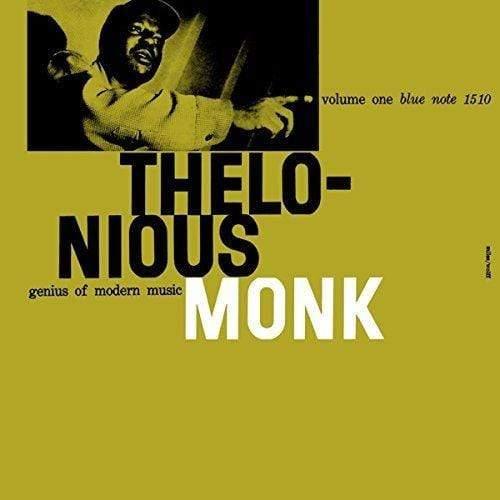
Personnel: Thelonious Monk (piano); Sahib Shihab, Danny Quebec West (alto saxophone); Billy Smith (tenor saxophone); Idrees Sulieman, George Taitt (trumpet); Bob Paige, Gene Ramey (bass); Art Blakey (drums).
Producer: Alfred Lion.
Reissue producer: Michael Cuscuna.
Recorded at WOR Studios, New York, New York on October 15 & 24 and November 21, 1947. Originally released on Bluenote (1510). Includes liner notes by Bob Blumenthal.
Digitally remastered by Rudy Van Gelder.
This is part of Blue Note's Rudy Van Gelder Editions series.
The innovations of pianist/composer Thelonious Monk are often lumped together with those of Charlie Parker and Dizzy Gillespie, as if his work was some kind of aesthetic footnote to their bebop revolution. In fact, this great composer established a parallel stream of modern jazz that is a universe unto itself. The music on these first Blue Note sessions is so brimming with joy and cosmic architecture, it's difficult to believe people once viewed Thelonious Sphere Monk's work as hopelesssly oblique.
Born in Rocky Mount, NC on October 10, 1917, Monk was brought up in the San Juan Hill section of Manhattan. He began playing piano at eleven, and soon went on the road with a touring revivalist. Some writers have speculated that his acerbic voicings and angular melodic lines were influenced in part by traditional blues and church music (not to mention the rickety old upright pianos he encountered along the way). However, by the time his work was first documented with electric guitarist Charlie Christian, Monk was clearly emerging from the stride tradition of pianists such as James P. Johnson.
By the time tenor saxophone patriarch Coleman Hawkins featured him on a 1944 recording date, Monk's mature style was emerging. In part, that style was a reaction to the emerging harmonic complexities and melodic intricacies of bebop, many of which Monk mid-wifed as a collaborator and teacher to the likes of Gillespie, Bud Powell and Miles Davis. Monk pared down his considerable technique and developed a singular style of improvisation and composition, derived from the example of Count Basie and Duke Ellington.
The three Alfred Lion-produced 1947 sessions which comprise GENIUS OF MODERN MUSIC, VOLUME 1 make provocative use of space and rhythmic displacements. The music discourages players from simply running the changes, in favor of a collective rhythmic dialogue and a thematic approach to motifs; the results convey the power of a big band in a small ensemble. Tunes such as "Humph" and "Who Knows" celebrate jagged rhythmic intricacies and canny dissonances. The chord cycles to "Thelonious" essentially orbit around a one-note-phrase, as Monk's crushed grace notes and jarring tonal clusters suggest the linear attack of a blues guitarist. And yet, Monk originals such as "Ruby My Dear," "Introspection," "Monk's Mood" and "Round Midnight" are full of lyric tenderness, while classic themes such as "Well You Needn't," "Off Minor" and "In Walked Bud" proceed with unwavering melodic logic and swing, as Monk and his favorite drummer Art Blakey engage each other in epic rhythmic dialogues.
- Format: Vinyl
- Genre: Jazz
- Remember, for our lowest prices, always order directly from Joco Records!

